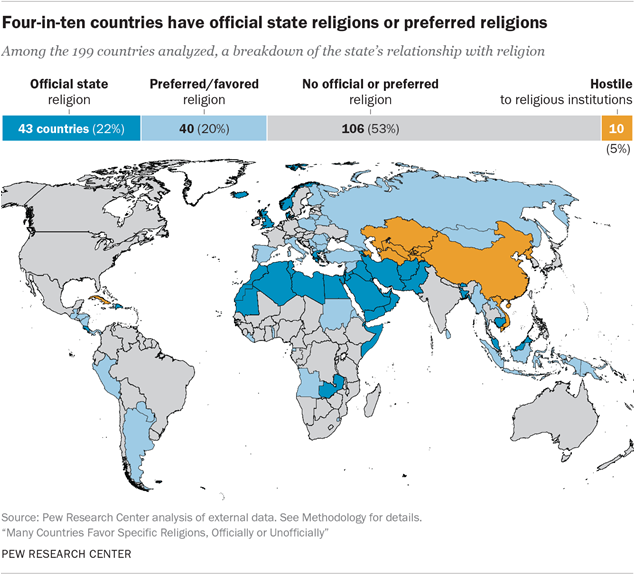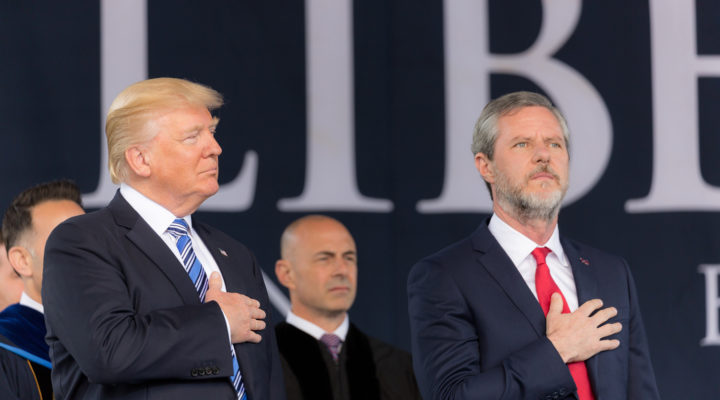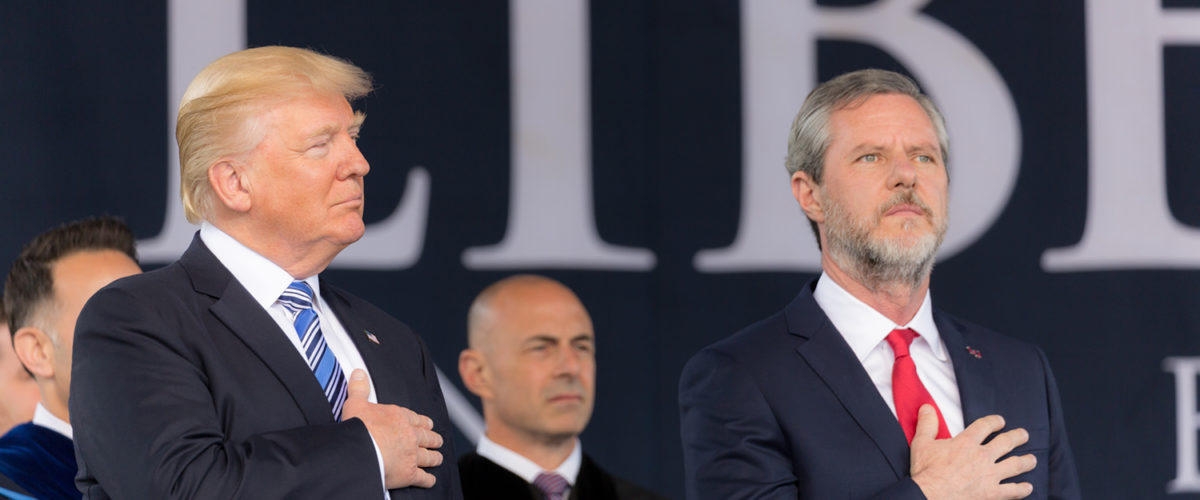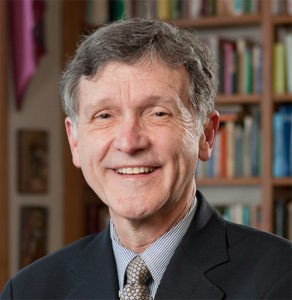Eighty-three nations have an official, state-endorsed religion or they give preferred treatment to one over others, according to new research.
The Pew Research Center study listed the United States among 106 countries that have no official or preferred faith.
But is that changing?
To some observers, it seems so given the increasingly blurry lines between church and state.
 Appearing to erode that historic separation in the U.S. is the cozy relationship between Donald Trump and conservative evangelical leaders. Images of pastors, many of them Southern Baptists, laying hands on and praying with the president have raised concerns among those who believe the chief executive must avoid such faith-based favoritism.
Appearing to erode that historic separation in the U.S. is the cozy relationship between Donald Trump and conservative evangelical leaders. Images of pastors, many of them Southern Baptists, laying hands on and praying with the president have raised concerns among those who believe the chief executive must avoid such faith-based favoritism.
Cabinet-level Bible studies at least give the impression that a preferred, if not official, American religion is emerging.
“They’ve been called the most evangelical Cabinet in history — men and women who don’t mince words when it comes to where they stand on God and the Bible,” the Christian Broadcasting Network declared in July.
Another step toward a state-sanctioned religion, many say, is the White House campaign to weaken or eliminate the Johnson Amendment. That would open the door for churches to offer political and financial support to candidates and causes. The consequences would be detrimental to the separation of church and state, opponents say.
“Inviting churches to intervene in campaigns with tax-deductible offerings would fundamentally change our houses of worship,” the Baptist Joint Committee for Religious Liberty warned in February about efforts to water down or eliminate the amendment. “It would usher our partisan divisions into the pews and harm the church’s ability to provide refuge.”
But do these trends herald the coming of state-based Christianity in the United States? Church historian Bill Leonard doesn’t think so.
Just do the math.
“The groups of people who would favor some sort of national ownership of Christianity are shrinking,” said Leonard, an expert on American religion and a professor at Wake Forest University Divinity School.
In fact, it is the increasingly rapid descent of organized religion that is fueling the drive to codify faith in America, he said.
“The decline of Christianity is compelling a number of faith communities to seek as much government resources as they can muster.”
The drive for federal and state assistance to prop up failing churches demonstrates that evangelicals are having difficulty maintaining or growing memberships through evangelization, he said.
“So, they want the government to intervene in some way or another.”
But, ultimately, it’s a pointless tactic because the numbers and trends in religion in America are simply against them.
 The number of Americans without any religious affiliation continues to grow. Last year, Pew reported Nones made up 23 percent of the population and were continuing to grow.
The number of Americans without any religious affiliation continues to grow. Last year, Pew reported Nones made up 23 percent of the population and were continuing to grow.
“That is having a huge effect on every church group, including evangelicals,” Leonard said.
The impact on the Southern Baptist Convention is telling. Baptist News Global reported in June that the SBC has suffered 10 straight years of membership declines and that its baptism rates had dropped to the lowest point in 70 years.
“Southern Baptists and Independent Baptists, who depended on mass revivalism for so long for their converts, are just in a panic,” he said. “They can’t change or adapt or get their bearings fast enough.”
And the departure of nones and Millennials from their pews will only continue and quicken as those people see conservatives trying to entwine government and faith, Leonard said.
“What we are experiencing is the loss of Protestant privilege in this country. It’s not disappearing completely, but pluralism is becoming increasingly normative — and we Baptists helped to invent it.”



